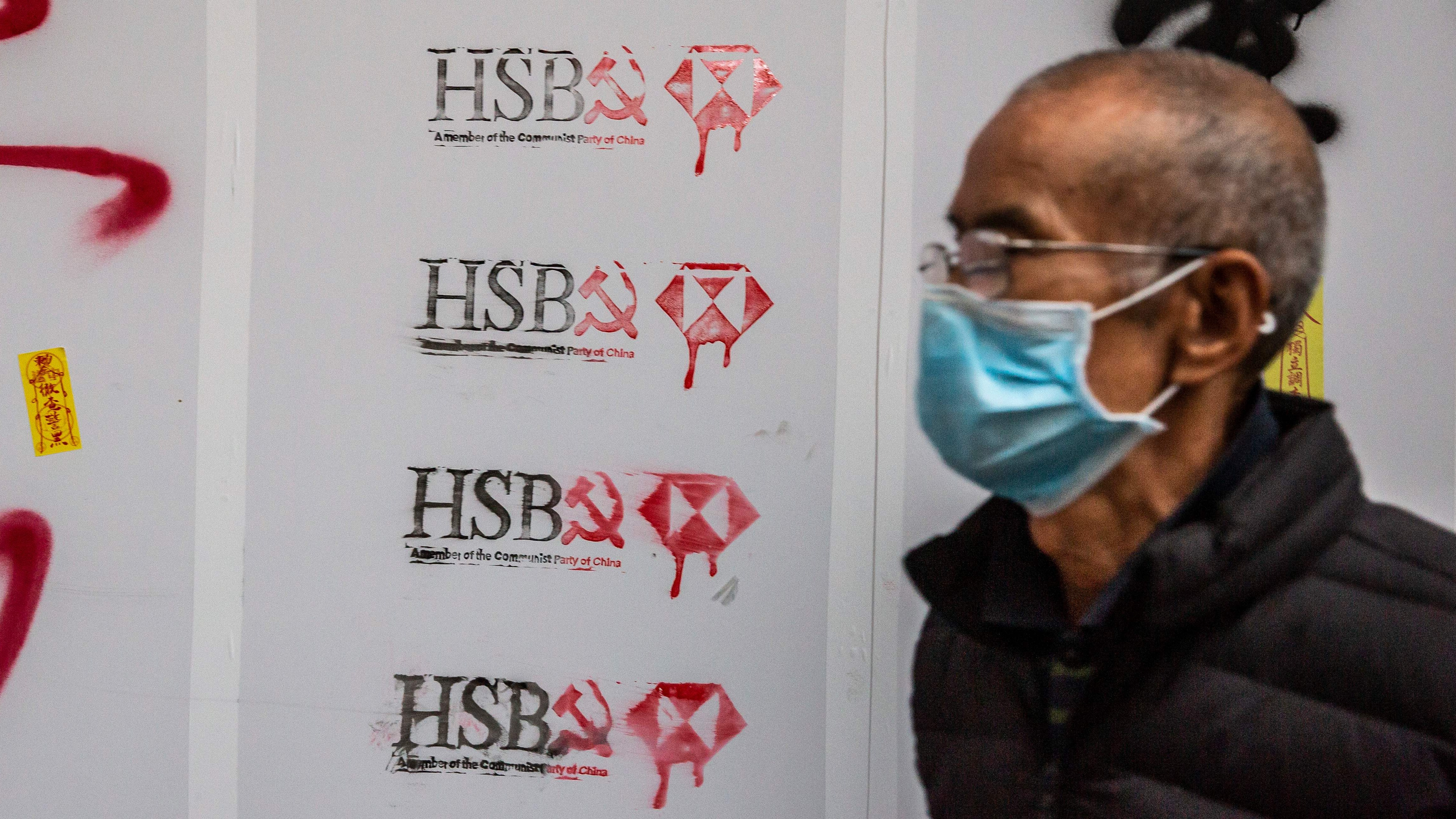Hong Kong: how HSBC became wrapped up in China’s ‘security law’
Global bank has spent much of 2020 embroiled in fierce debate over territory’s sovereignty

A free daily email with the biggest news stories of the day – and the best features from TheWeek.com
You are now subscribed
Your newsletter sign-up was successful
HSBC has been a staple of Hong Kong’s financial landscape for over a century, but the banking giant has endured a torrid 2020 after becoming embroiled in the ongoing debate over China’s “security laws”.
For more than twelve months, the bank has been “bashed and threatened by the Chinese authorities” over the legislation that effectively outlaws attempts at secession from Beijing, The Times says.
And after breaking cover to back the laws in June, HSBC found itself under fire again, this time from Hongkongers and British MPs, who accused the company of kow-towing to Chinese influence.
The Week
Escape your echo chamber. Get the facts behind the news, plus analysis from multiple perspectives.

Sign up for The Week's Free Newsletters
From our morning news briefing to a weekly Good News Newsletter, get the best of The Week delivered directly to your inbox.
From our morning news briefing to a weekly Good News Newsletter, get the best of The Week delivered directly to your inbox.
A geopolitical storm
The security law, passed earlier this year, became the subject of fierce opposition after effectively criminalising any attempts by Hong Kong to break away from China. The legislation also outlawed what Beijing calls “subversion”, defined as “undermining the power or authority of the central government”.
As a “financial bridge between Asia and the west” HSBC was caught in the crossfire, with activists venting their frustration at the bank’s stance by vandalising branches across the city, The Guardian reports.
The bank revealed its hand in June, when HSBC’s Asia-Pacific chief executive Peter Wong said on the Chinese social media platform WeChat that he had signed a petition supporting Beijing’s new rules. Wong said the bank “respects and supports laws and regulations that will enable Hong Kong to recover and rebuild the economy and, at the same time, maintain the principle of ‘one country, two systems’”.
A free daily email with the biggest news stories of the day – and the best features from TheWeek.com
The statement prompted outrage from protesters and was followed by months of silence from HSBC.
Meanwhile, security officials in Beijing are also treating the bank with scepticism due to rumours that it collaborated with protesters. And last week, Chinese state-run newspaper The Global Times reported the bank was likely to be included on an official list of “unreliable entities” that Beijing sees as a threat to China’s sovereignty.
What does it mean for business in Hong Kong?
HSBC has been widely condemned by rights groups in the West, who have sounded the alarm over the increasing influence of China on Hong Kong.
HSBC’s “international commitments are now being tested, as it finds itself caught in the middle of a trade row between Washington and Beijing”, a battle that could have “material consequences for a bank that plans to expand further in Asia”, The Guardian says.
But HSBC’s predicament points to a wider issue facing businesses operating in the former capital-friendly city.
The US response to China’s aggression, the Hong Kong Autonomy Act, “authorises sanctions on those involved in ‘extinguishing Hong Kong’s freedom’, as well as on financial firms that knowingly do business with them”, The Economist says.
With China increasingly flexing its economic and political muscle, business attempting to operate in the territory may find themselves stuck between a rock and a hard place.
-
 How the FCC’s ‘equal time’ rule works
How the FCC’s ‘equal time’ rule worksIn the Spotlight The law is at the heart of the Colbert-CBS conflict
-
 What is the endgame in the DHS shutdown?
What is the endgame in the DHS shutdown?Today’s Big Question Democrats want to rein in ICE’s immigration crackdown
-
 ‘Poor time management isn’t just an inconvenience’
‘Poor time management isn’t just an inconvenience’Instant Opinion Opinion, comment and editorials of the day
-
 Will increasing tensions with Iran boil over into war?
Will increasing tensions with Iran boil over into war?Today’s Big Question President Donald Trump has recently been threatening the country
-
 Corruption: The spy sheikh and the president
Corruption: The spy sheikh and the presidentFeature Trump is at the center of another scandal
-
 Rubio boosts Orbán ahead of Hungary election
Rubio boosts Orbán ahead of Hungary electionSpeed Read Far-right nationalist Prime Minister Viktor Orbán is facing a tough re-election fight after many years in power
-
 Greenland’s capital becomes ground zero for the country’s diplomatic straits
Greenland’s capital becomes ground zero for the country’s diplomatic straitsIN THE SPOTLIGHT A flurry of new consular activity in Nuuk shows how important Greenland has become to Europeans’ anxiety about American imperialism
-
 Epstein files topple law CEO, roil UK government
Epstein files topple law CEO, roil UK governmentSpeed Read Peter Mandelson, Britain’s former ambassador to the US, is caught up in the scandal
-
 Iran and US prepare to meet after skirmishes
Iran and US prepare to meet after skirmishesSpeed Read The incident comes amid heightened tensions in the Middle East
-
 Which way will Trump go on Iran?
Which way will Trump go on Iran?Today’s Big Question Diplomatic talks set to be held in Turkey on Friday, but failure to reach an agreement could have ‘terrible’ global ramifications
-
 Israel retrieves final hostage’s body from Gaza
Israel retrieves final hostage’s body from GazaSpeed Read The 24-year-old police officer was killed during the initial Hamas attack